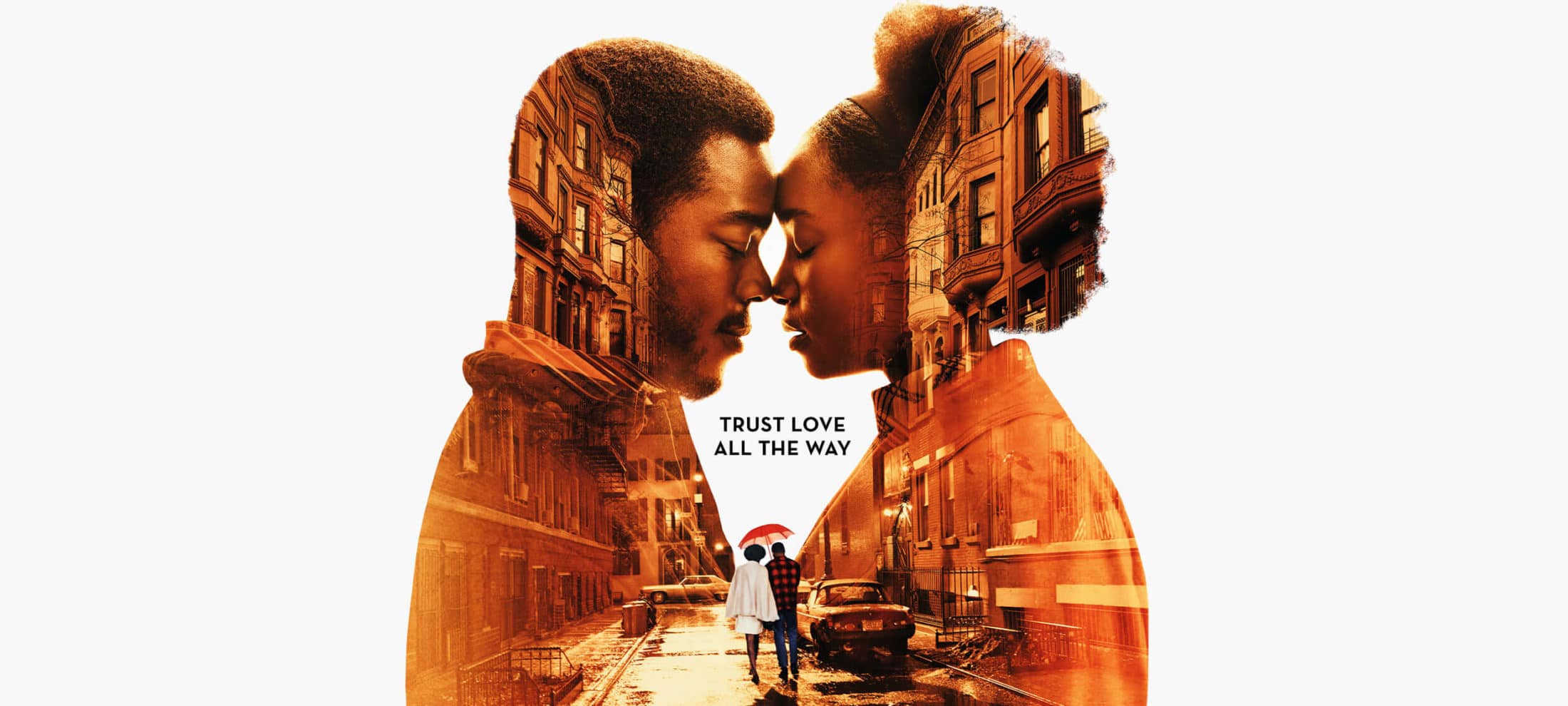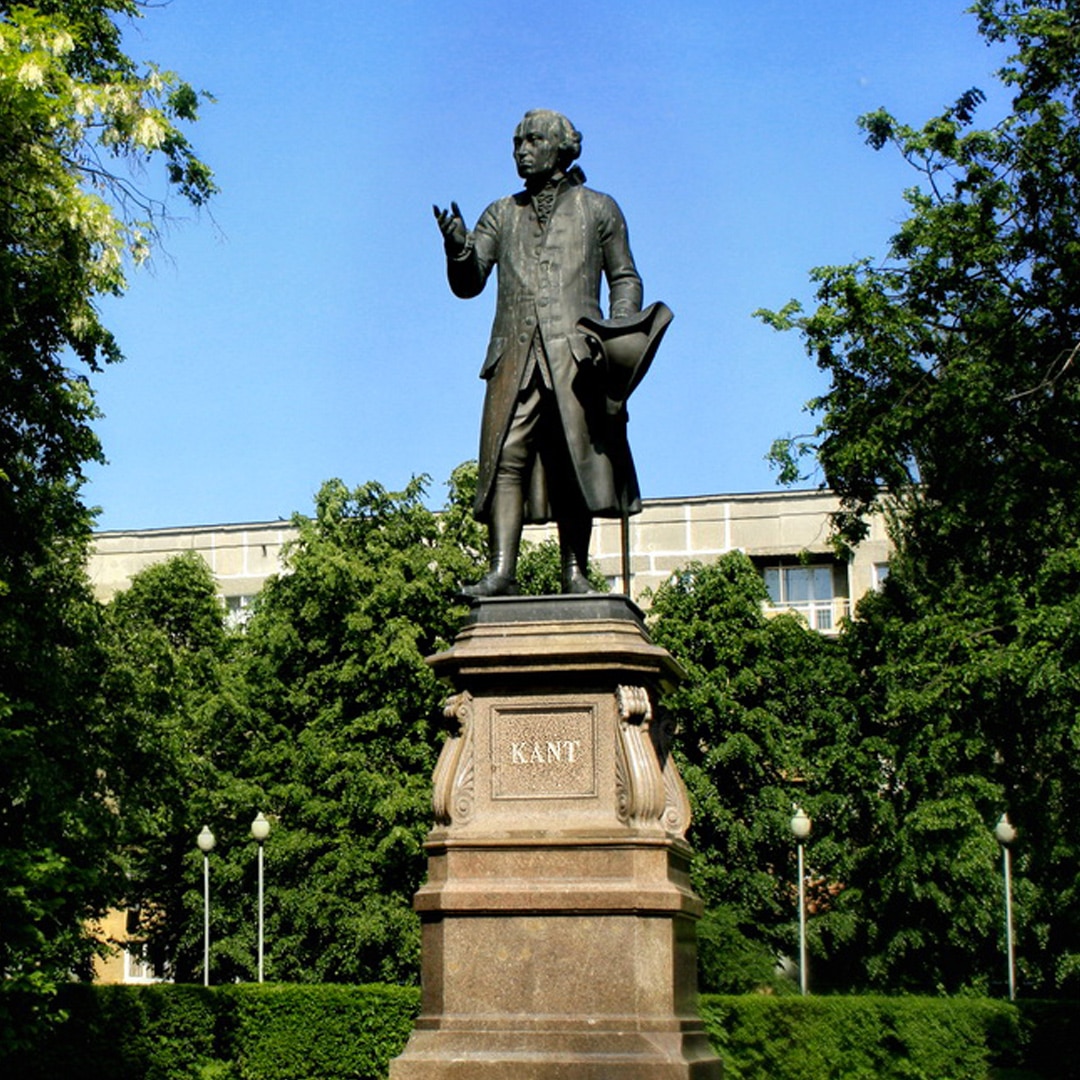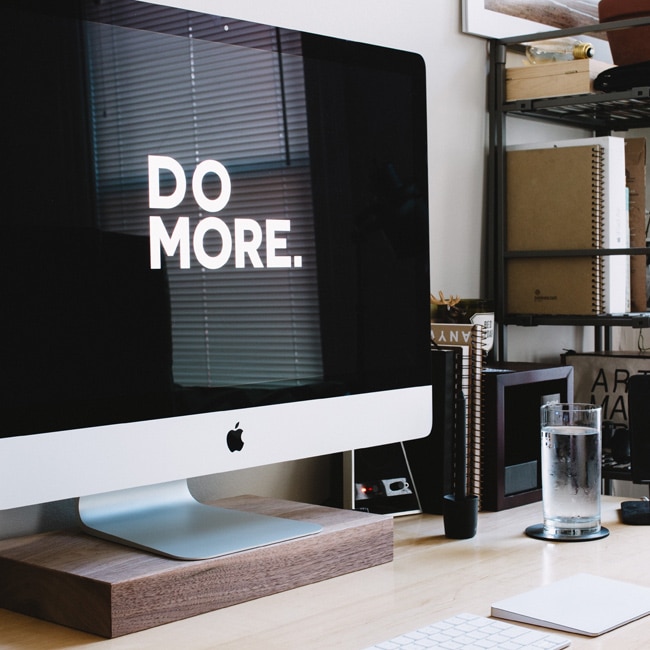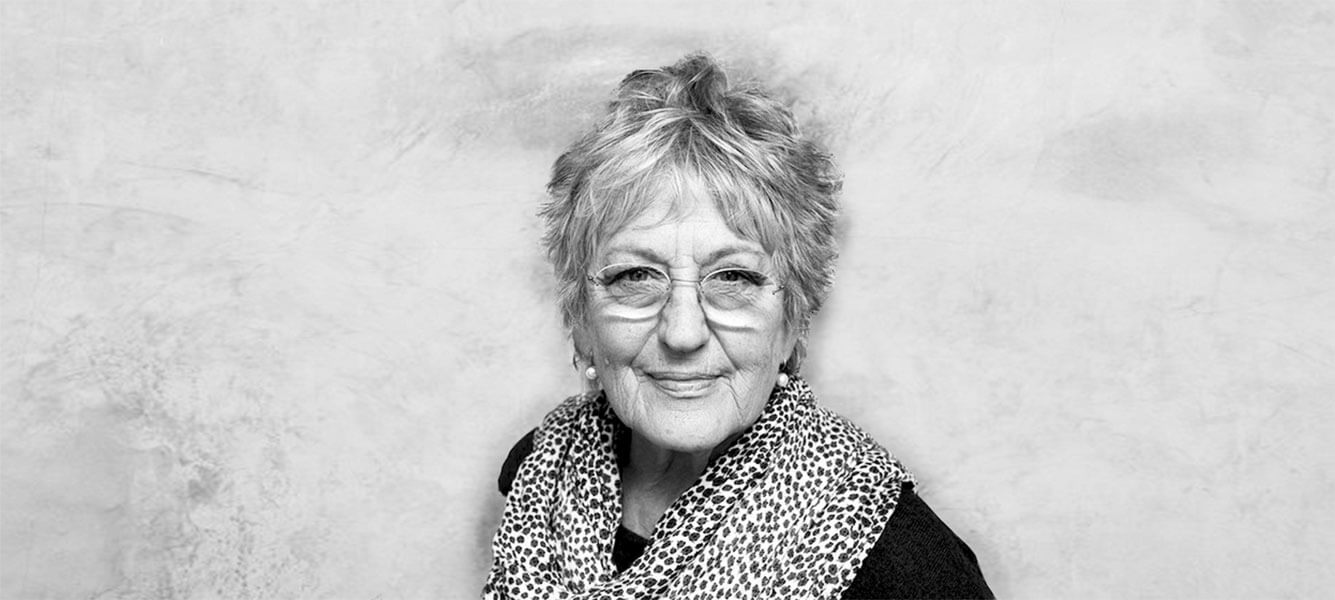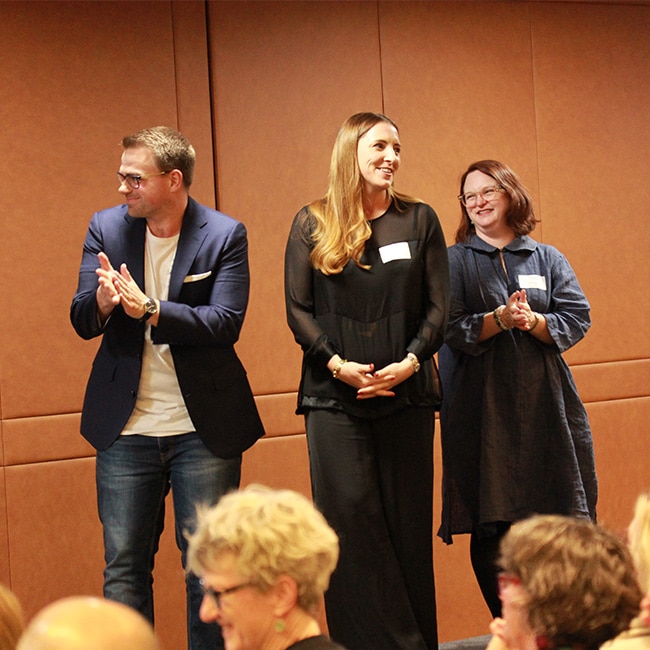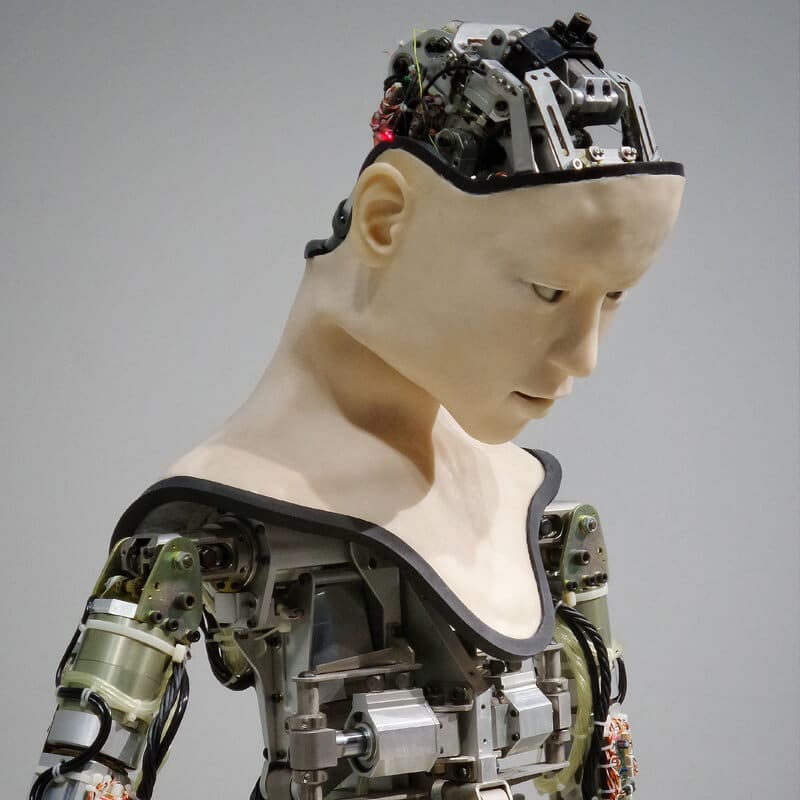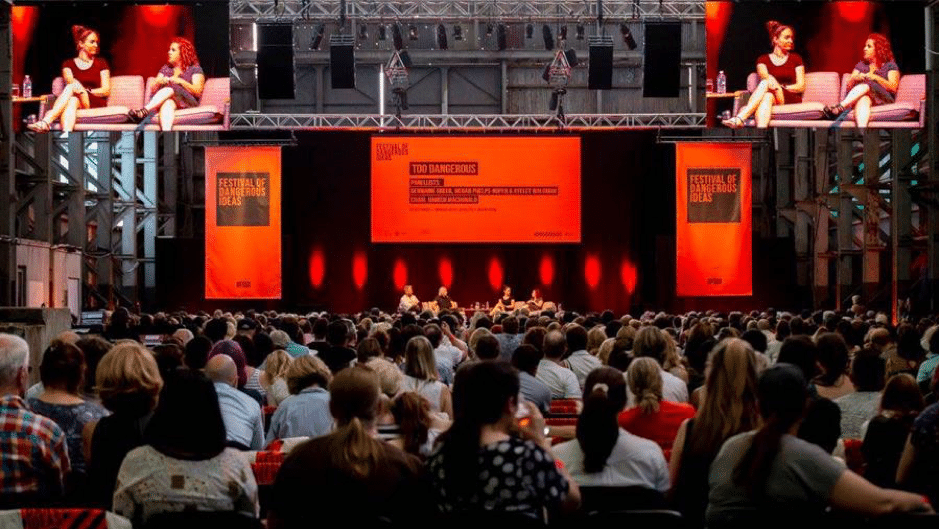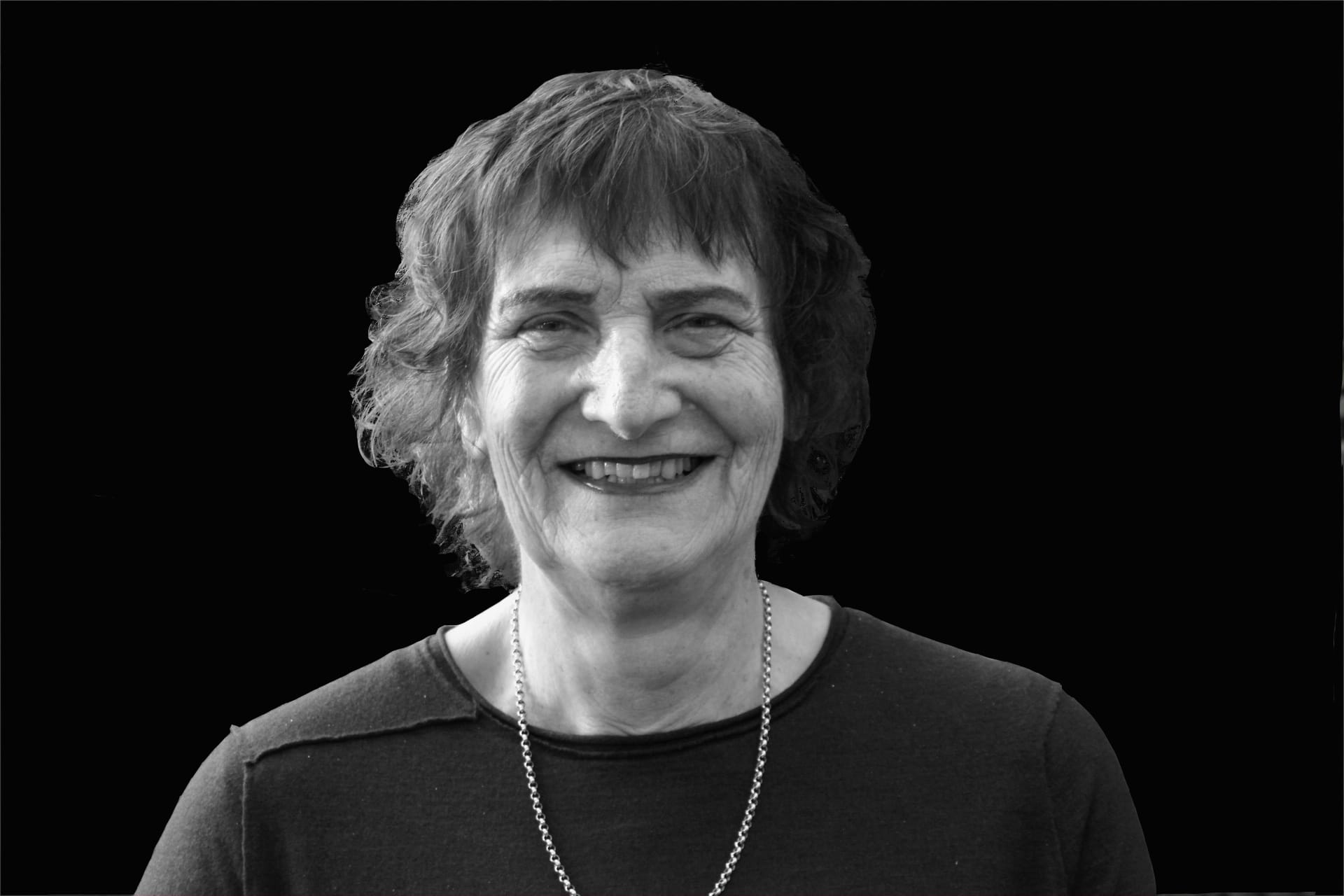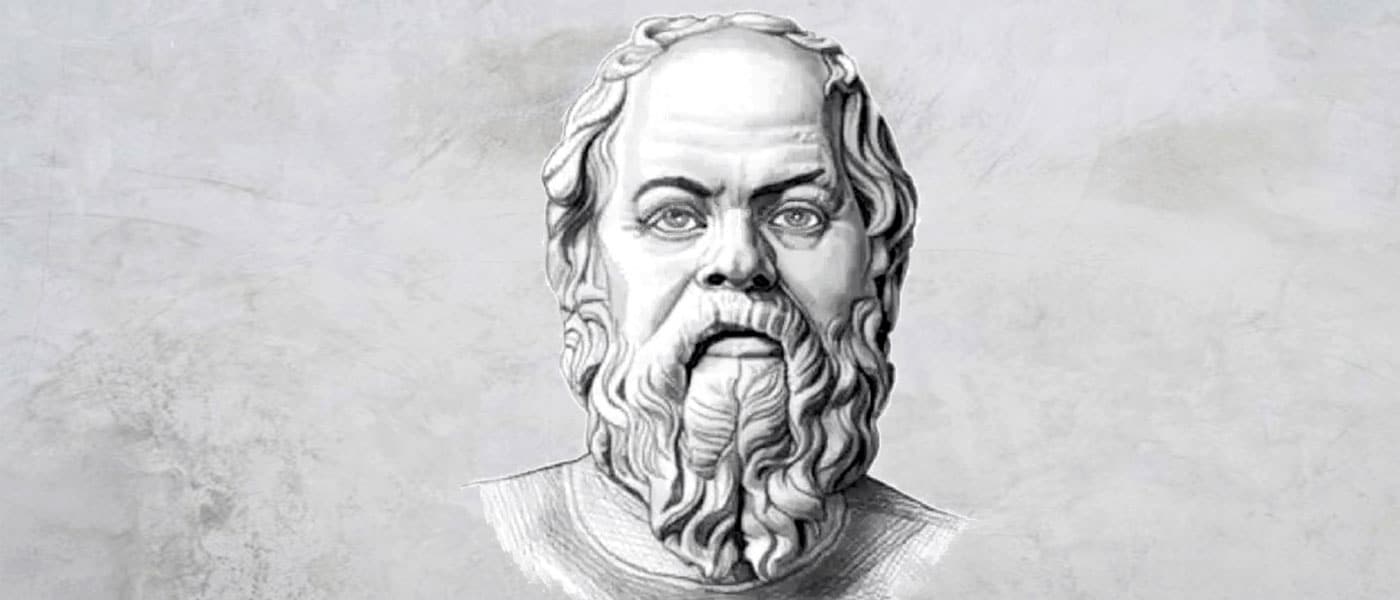Five dangerous ideas to ponder over the break

Five dangerous ideas to ponder over the break
Opinion + AnalysisRelationshipsSociety + Culture
BY The Ethics Centre 17 DEC 2019
If you’re gifted with downtime this holiday season, we’ve curated some big ideas for you to read, watch or listen to. These top picks will challenge your thinking over the holiday break.
-
The lost the art disagreement
In his keynote at the last Festival of Dangerous Ideas, Stephen Fry told us that “a Grand Canyon has opened up in our world and the crack grows wider every day. As it widens, enemies speak more and more incontinently about the other side.” Within this great fissure lies the lost art of disagreement. Hear how Fry suggests we begin to navigate through a world of seemingly opposing ideas.
-
Curb immigration, curb growth
Our cities are overcrowded, and our ecosystems are degrading at a rapid rate. Is population growth to blame? This year’s first IQ2 Debate: Curb Immigration, heard from environmental scientist Dr Jonathan Sobels, journalist Satyajet Marar, counter terrorism expert Dr Anne Aly and urban planner Professor Nicole Gurran. Watch the debate and hear their perspective on issues from urban planning and government policy, to environmental impacts and economic advantages.
-
An age of anger
Anarchy, resentment and the urge to smash the system seem to be spreading. What caused us to become so angry? How can we understand and navigate interactions with those who are? Author and academic Pankaj Mishra explains why society seems to be so quick to become outraged, and how transformative thinking might solve the epidemic.
-
Politics and populism
We are seeing a rise of nationalism, racism and authoritarian regimes across the world. Will democracy survive the new decade? At last year’s Festival of Dangerous Ideas Niall Ferguson contemplated the future of populist movements. Pankaj Mishra, Angela Nagle and Tim Soutphommasane joined a panel to explore if freedom is just too heavy a burden in the new world in the ‘Rehearsal for Fascism’.
-
Masculinity is not so fragile
Following the fallout of the #MeToo movement, many men feel that masculinity is unfairly under attack. David Leser, Zac Seidler, Raewyn Connell and Cath Lumby joined our IQ2 debate: Masculinity is it really so fragile, to share their views on modern masculinity and unpack the dangers or virtues of male normative behaviour.
The Festival of Dangerous Ideas returns in 2020, bringing a host of big thinkers and new perspectives to the dangerous issues we face. Gift vouchers are on sale now.
Ethics in your inbox.
Get the latest inspiration, intelligence, events & more.
By signing up you agree to our privacy policy
You might be interested in…
Explainer
Relationships
Ethics Explainer: Akrasia
Opinion + Analysis
Politics + Human Rights, Relationships
Is it wrong to care about Ukraine more than other wars?
Opinion + Analysis
Politics + Human Rights, Relationships, Society + Culture
Film Review: If Beale Street Could Talk
Opinion + Analysis
Health + Wellbeing, Politics + Human Rights, Relationships
CoronaVirus reveals our sinophobic underbelly
BY The Ethics Centre
The Ethics Centre is a not-for-profit organisation developing innovative programs, services and experiences, designed to bring ethics to the centre of professional and personal life.
Joker broke the key rule of comic book movies: it made the audience think

Joker broke the key rule of comic book movies: it made the audience think
Opinion + AnalysisRelationshipsSociety + Culture
BY Matthew Beard The Ethics Centre 17 DEC 2019
Todd Phillip’s Joker has left audiences around the world outraged, moved and confused with its rewriting of the comic book lore surrounding The Joker.
The film tells the story of Arthur Fleck, a downtrodden man with an unspecified mental illness and an uncontrollable tendency to burst out laughing – whose treatment by society leads him down the path of moral nihilism and violence until he becomes the infamous Clown Prince of Crime.
It has received its share of controversy. Joker won the prestigious Golden Lion at the Venice Film Festival, is receiving early Oscar Buzz and has clocked over $850 million in the worldwide box office.
It’s also been heavily criticised for being overly sympathetic to the perpetrators of mass violence. Many critics Fleck’s turn from reserved, alienated performing clown to theatrical mass murderer as analogy for the lives of a number of real-world mass shooters.
Couple this with Joker’s depiction of systemic social forces, not individual people, as the true villains of our time, and it can be argued that the film offers an apology for people who use violence – often against women and people of colour – as a way of expressing their dissatisfaction with a world that hasn’t given them what they want.
The film is shot from Fleck’s perspective, and therefore casts huge doubt on what is real and what’s just happening in Fleck’s mind. Not long after watching it, I found myself trying to piece it all together. Did the climactic final act actually happen?
The genius and mischief of unreliable narrator motifs – think of Inception for example – is that we find ourselves looking for a definitive reading, but none exists. Not even the director is able to close the debate – theirs is just another interpretation.
Interestingly, the unreliable narrator question in Joker serves as a handy metaphor for broader confusion about the ethics and politics of the film. If the critical commentary and public discourse are anything to go by, the film left audiences confused not only about the reality of the story, but about its morality as well.
And here’s the central rub with Joker as a political and ethical challenge. It’s rife with ambiguity. What does it stand for? Who is the villain and who – if anybody – is the hero? Are we meant to empathise with Fleck or judge him? Should we join the masses in being furious at the uber-rich and uber-callous Thomas Wayne, or should we be concerned at the accelerating rate of violence?
Just like we don’t know for sure what was in Fleck’s mind and what really happened in the film, it’s hard to know what the film wants us to think about the events of Joker.
Warner Bros themselves tried to pre-load people’s expectations of the film by saying “make no mistake: neither the fictional character Joker, nor the film, is an endorsement of real-world violence of any kind. It is not the intention of the film, the filmmakers or the studio to hold this character up as a hero.”
Despite this effort, most viewers will have arrived at the film with pre-conceived ideas, because the critical conversations around Joker have been relentless. From the first trailers released and a leaked script, people have been speculating about the political effects it would have. Some critics – even some who think the film has artistic merit – wonder if it should have been made.
There is something interesting going on here. On the one hand, we have people experiencing Joker in wildly different ways. On the other hand, we have critics – and the film developers – moulding people’s views of the film before they’ve even seen it.
Then we have the film itself, which is concerned with how easy it is for people to get swept up in movements. How quickly agency can be taken away. And how recklessly people can fight to reclaim that agency.
In Joker, Fleck is entirely without agency. He can’t control his random outbursts of laughter, he can’t make himself understood to his stand-up audiences and even as he begins to embrace his Joker identity, many of the systemic impacts of his actions aren’t through his design. When Fleck does try to seize some agency over his life, he – like the lower-class Gothamites who burn their city in violent riots – does so recklessly, callously and irresponsibly.
Zooming out to the discourse around the film, you can see life mirroring art. Audiences have been systematically deprived of the agency they need to form their own views around the film.
This happened well before the first trailer dropped. Arguably, it began with the rise of comic book movies more generally.
We live in an age where it’s easy to treat films as just another form of content. Just like we binge through streaming services and mindlessly scroll social media feed, we can let films wash over us without ever actively engaging with the material. Sure, we follow the plot and might have a view on whether we enjoyed the film or not, but that’s not the same as allowing a film (or a series, or whatever) to make us think.
The comic book movie is the embodiment of this trend. The heroes and villains are mapped out in advance. We know what will happen and we watch to find out how it will happen. Consider Avengers: Endgame. We knew Thanos would be defeated and that the heroes who had been snapped out of existence would return – after all, a bunch of them already had sequels in the calendar. There’s no moral ambiguity; just a good story.
Of course, that’s fine. The Marvel Cinematic Universe makes up for in fun what it lacks in moral complexity. But Joker is different. Despite appearing in the guise of a comic book film, it’s not a comic book movie at all. It didn’t need to be about the rise of The Joker. What that’s highlighted is how a generation raised on comic book movies have been left unprepared to engage with a film so rife with complexity.
Many are still trying to do so. Like Immanuel Kant encouraged in ‘What is Enlightment?’, they’re daring to think for themselves. Kant saw this enlightenment as liberating – a freedom from intellectual immaturity. But it might also be reckless – particularly if it ends up with people decided that Warner Bros are wrong and Fleck is the hero of the story.
But the best way to guard against this isn’t to avoid films like Joker, or to be too heavy-handed in how people interpret the film. It’s to create more space in our content consumption for things that are more than just fairy floss for our brains. To put the Iron Mans and Flashes of the world in their proper place and find some balance so that we can enjoy the fun for what it is without dulling our senses when something more complex comes along.
The Ethics Centre is presenting a panel discussion on The Ethics of Art and Violence at the MCA on 12 February. Tickets on sale now. For further information click here.
Ethics in your inbox.
Get the latest inspiration, intelligence, events & more.
By signing up you agree to our privacy policy
You might be interested in…
Opinion + Analysis
Society + Culture
Ask an ethicist: Am I falling behind in life “milestones”?
Opinion + Analysis
Business + Leadership, Relationships
So your boss installed CCTV cameras
Explainer
Relationships
Ethics Explainer: Particularism
Opinion + Analysis
Business + Leadership, Relationships
The pivot: Mopping up after a boss from hell
BY Matthew Beard
Matt is a moral philosopher with a background in applied and military ethics. In 2016, Matt won the Australasian Association of Philosophy prize for media engagement. Formerly a fellow at The Ethics Centre, Matt is currently host on ABC’s Short & Curly podcast and the Vincent Fairfax Fellowship Program Director.
BY The Ethics Centre
The Ethics Centre is a not-for-profit organisation developing innovative programs, services and experiences, designed to bring ethics to the centre of professional and personal life.
The thorny ethics of corporate sponsorships
The thorny ethics of corporate sponsorships
WATCHBusiness + Leadership
BY The Ethics Alliance The Ethics Centre 10 DEC 2019
With a workforce that increasingly prizes purpose led organisations, how can businesses make mutually beneficial brand alignments as an extension of their own values?
And what should they do if it all goes horribly wrong? In this series of short interviews, The Ethics Alliance draw on the experiences of organisations who have successfully overseen hugely profitable and meaningful partnerships and weathered the crisis of negative associations to pave a way forward.
Ethics in your inbox.
Get the latest inspiration, intelligence, events & more.
By signing up you agree to our privacy policy
You might be interested in…
Opinion + Analysis
Business + Leadership
How a Shadow Values Review can improve your organisation
Opinion + Analysis
Business + Leadership, Politics + Human Rights, Relationships
It’s time to increase racial literacy within our organisations
Opinion + Analysis
Business + Leadership
Pulling the plug: an ethical decision for businesses as well as hospitals
Opinion + Analysis
Business + Leadership
Managing corporate culture
BY The Ethics Alliance
The Ethics Alliance is a community of organisations sharing insights and learning together, to find a better way of doing business. The Alliance is an initiative of The Ethics Centre.
BY The Ethics Centre
The Ethics Centre is a not-for-profit organisation developing innovative programs, services and experiences, designed to bring ethics to the centre of professional and personal life.
To fix the problem of deepfakes we must treat the cause, not the symptoms

To fix the problem of deepfakes we must treat the cause, not the symptoms
Opinion + AnalysisRelationshipsScience + Technology
BY Matthew Beard The Ethics Centre 5 DEC 2019
This article was written for, and first published by The Guardian. Republished with permission.
Once technology is released, it’s like herding cats. Why do we continue to let the tech sector manage its own mess?
We haven’t yet seen a clear frontrunner emerge as the Democratic candidate for the 2020 US election. But I’ve been interested in another race – the race to see which buzzword is going to be a pivotal issue in political reporting, hot takes and the general political introspection that elections bring. In 2016 it was “fake news”. “Deepfake” is shoring up as one of the leading candidates for 2020.
This week the US House of Representatives intelligence committee asked Facebook, Twitter and Google what they were planning to do to combat deepfakes in the 2020 election. And it’s a fair question. With a bit of work, deepfakes could be convincing and misleading enough to make fake news look like child’s play.
Deepfake, a portmanteau of “deep learning” and “fake”, refers to AI software that can superimpose a digital composite face on to an existing video (and sometimes audio) of a person.
The term first rose to prominence when Motherboard reported on a Reddit user who was using AI to superimpose the faces of film stars on to existing porn videos, creating (with varying degrees of realness) porn starring Emma Watson, Gal Gadot, Scarlett Johansson and an array of other female celebrities.
However, there are also a range of political possibilities. Filmmaker Jordan Peele highlighted some of the harmful potential in an eerie video produced with Buzzfeed, in which he literally puts his words in Barack Obama’s mouth. Satisfying or not, hearing Obama call US president Trump a “total and complete dipshit” is concerning, given he never said it.
Just as concerning as the potential for deepfakes to be abused is that tech platforms are struggling to deal with them. For one thing, their content moderation issues are well documented. Most recently, a doctored video of Nancy Pelosi, slowed and pitch-edited to make her appear drunk, was tweeted by Trump. Twitter did not remove the video, YouTube did, and Facebook de-ranked it in the news feed.
For another, they have already tried, and failed, to moderate deepfakes. In a laudably fast response to the non-consensual pornographic deepfakes, Twitter, Gfycat, Pornhub and other platforms quickly acted to remove them and develop technology to help them do it.
However, once technology is released it’s like herding cats. Deepfakes are a moving feast and as soon as moderators find a way of detecting them, people will find a workaround.
But while there are important questions about how to deal with deepfakes, we’re making a mistake by siloing it off from broader questions and looking for exclusively technological solutions. We made the same mistake with fake news, where the prime offender was seen to be tech platforms rather than the politicians and journalists who had created an environment where lies could flourish.
The furore over deepfakes is a microcosm for the larger social discussion about the ethics of technology. It’s pretty clear the software shouldn’t have been developed and has led – and will continue to lead – to disproportionately more harm than good. And the lesson wasn’t learned. Recently the creator of an app called “DeepNude”, designed to give a realistic approximation of how a woman would look naked based on a clothed image, cancelled the launch fearing “the probability that people will misuse it is too high”.
What the legitimate use for this app is, I don’t know, but the response is revealing in how predictable it is. Reporting triggers some level of public outcry, at which suddenly tech developers realise the error of their ways. Theirs is the conscience of hindsight: feeling bad after the fact rather than proactively looking for ways to advance the common good, treat people fairly and minimise potential harm. By now we should know better and expect more.
“Technology is a way of seeing the world. It’s a kind of promise – that we can bring the world under our control and bend it to our will.”
Why then do we continue to let the tech sector manage its own mess? Partly it’s because it is difficult, but it’s also because we’re still addicted to the promise of technology even as we come to criticise it. Technology is a way of seeing the world. It’s a kind of promise – that we can bring the world under our control and bend it to our will. Deepfakes afford us the ability to manipulate a person’s image. We can make them speak and move as we please, with a ready-made, if weak, moral defence: “No people were harmed in the making of this deepfake.”
But in asking for a technological fix to deepfakes, we’re fuelling the same logic that brought us here. Want to solve Silicon Valley? There’s an app for that! Eventually, maybe, that app will work. But we’re still treating the symptoms, not the cause.
The discussion around ethics and regulation in technology needs to expand to include more existential questions. How should we respond to the promises of technology? Do we really want the world to be completely under our control? What are the moral costs of doing this? What does it mean to see every unfulfilled desire as something that can be solved with an app?
Yes, we need to think about the bad actors who are going to use technology to manipulate, harm and abuse. We need to consider the now obvious fact that if a technology exists, someone is going to use it to optimise their orgasms. But we also need to consider what it means when the only place we can turn to solve the problems of technology is itself technological.
Big tech firms have an enormous set of moral and political responsibilities and it’s good they’re being asked to live up to them. An industry-wide commitment to basic legal standards, significant regulation and technological ethics will go a long way to solving the immediate harms of bad tech design. But it won’t get us out of the technological paradigm we seem to be stuck in. For that we don’t just need tech developers to read some moral philosophy. We need our politicians and citizens to do the same.
“At the moment we’re dancing around the edges of the issue, playing whack-a-mole as new technologies arise.”
At the moment we’re dancing around the edges of the issue, playing whack-a-mole as new technologies arise. We treat tech design and development like it’s inevitable. As a result, we aim to minimise risks rather than look more deeply at the values, goals and moral commitments built into the technology. As well as asking how we stop deepfakes, we need to ask why someone thought they’d be a good idea to begin with. There’s no app for that.
Ethics in your inbox.
Get the latest inspiration, intelligence, events & more.
By signing up you agree to our privacy policy
You might be interested in…
Opinion + Analysis
Relationships, Society + Culture
If we’re going to build a better world, we need a better kind of ethics
Opinion + Analysis
Relationships, Society + Culture
What money and power makes you do: The craven morality of The White Lotus
Opinion + Analysis
Relationships, Society + Culture
Meet Dr Tim Dean, our new Senior Philosopher
Explainer
Relationships
Ethics Explainer: Hope
BY Matthew Beard
Matt is a moral philosopher with a background in applied and military ethics. In 2016, Matt won the Australasian Association of Philosophy prize for media engagement. Formerly a fellow at The Ethics Centre, Matt is currently host on ABC’s Short & Curly podcast and the Vincent Fairfax Fellowship Program Director.
BY The Ethics Centre
The Ethics Centre is a not-for-profit organisation developing innovative programs, services and experiences, designed to bring ethics to the centre of professional and personal life.
Beyond the headlines of the Westpac breaches

Beyond the headlines of the Westpac breaches
Opinion + AnalysisBusiness + LeadershipRelationships
BY Simon Longstaff The Ethics Centre 28 NOV 2019
As I look back on the week of turmoil that has engulfed Westpac, my overwhelming feeling is one of sadness.
I am sad for the children whose lives may have been savaged by sexual predators using the bank’s faulty systems. I am sad for the tens of thousands of Westpac employees who may feel tainted by association with the bank’s failings. I am sad for individuals, like Brian Hartzer and Lindsay Maxsted, whom I believe will be remembered more for the manner of their parting from the bank than for all the good that they did along the way. All of them deserve better.
None of this lessens my judgement about the seriousness of the faults identified by Austrac. Nor is sadness a reason for limiting the adverse consequences borne by individuals and the company.
Rather, in the pell-mell of the moment – super-charged by media and politicians enjoying a ‘gotcha’ moment – it is easy to forget the human dimension of what has occurred – whether it be the impact on the victims of sexual exploitation or the person whose pride in their employer has been dented.
Behind the headlines, beyond the outrage, there are people whose lives are in turmoil. Some are very powerful. Some are amongst the most vulnerable in the world. They are united by the fact that they are all hurt by failures of this magnitude.
For Westpac’s part, the company has not sought to downplay the seriousness of what has occurred. There has not been any deflection of blame. There has been no attempt to bury the truth. If anything, the bank’s commitment to a thorough investigation of underlying causes has worked to its disadvantage – especially in a world that demands that the acceptance of responsibility be immediate and consequential.
The issue of responsibility has two dimensions in this particular case: one particular to Westpac and the other more general. First, there are some people who are revelling in Westpac’s fall from grace. Many in this group oppose Westpac’s consistently progressive position on issues like sustainability, Indigenous affairs, etc. Some take particular delight in seeing the virtuous stumble. However, this relatively small group is dwarfed by the vast number of people who engage with the second dimension – the sense that we have passed beyond the days of responsible leadership of any kind.
I suspect that Westpac and its leadership are part of the ‘collateral damage’ caused by the destruction of public trust in institutions and leadership more generally.
When was the last time a government minister, of any party in any Australian government, resigned because of a failure in their department? Why are business leaders responsible for everything good done by a company – but never any of its failures?
Some people think that the general public doesn’t notice this … or that they do not care. They’re wrong on both counts. I suspect that the general public has had a gut-full of the hypocrisy. They want to know why the powerless constantly being held to account while the powerful escape all sanction?
I think that this is the fuel that fed the searing heat applied to Westpac and its leadership earlier this week. The issues in Westpac were always going to invite criticism but this was amplified by a certain schadenfreude amongst Westpac’s critics and the general public’s anger at leaders who refuse to accept responsibility.
So, what are we to make of this?
One of the lessons that people should keep in mind when they volunteer for a leadership role is that strategic leaders are always responsible; even when they are not personally culpable for what goes wrong on their watch. This is not fair. It’s not fair that a government minister be presumed to know of everything that is going on in their department. It’s not fair to expect company directors or executives to know all that is done in their name. It is not fair.
However, it is necessary that this completely unrealistic expectation, this ‘fiction’, be maintained and that leaders act as if it were true. Otherwise, the governance of complex organisations and institutions will collapse. Then things that are far worse than our necessary fictions will emerge to fill the void; the grim alternatives of anarchy or autocracy.
It’s sad that we have come to a point where this even needs to be said.
Ethics in your inbox.
Get the latest inspiration, intelligence, events & more.
By signing up you agree to our privacy policy
You might be interested in…
Opinion + Analysis
Health + Wellbeing, Relationships
James Hird In Conversation Q&A
Opinion + Analysis
Business + Leadership, Relationships, Science + Technology, Society + Culture
Who does work make you? Severance and the etiquette of labour
Opinion + Analysis
Business + Leadership, Science + Technology
Finance businesses need to start using AI. But it must be done ethically
Opinion + Analysis
Relationships, Society + Culture
How can you love someone you don’t know? ‘Swarm’ and the price of obsession
BY Simon Longstaff
Simon Longstaff began his working life on Groote Eylandt in the Northern Territory of Australia. He is proud of his kinship ties to the Anindilyakwa people. After a period studying law in Sydney and teaching in Tasmania, he pursued postgraduate studies as a Member of Magdalene College, Cambridge. In 1991, Simon commenced his work as the first Executive Director of The Ethics Centre. In 2013, he was made an officer of the Order of Australia (AO) for “distinguished service to the community through the promotion of ethical standards in governance and business, to improving corporate responsibility, and to philosophy.” Simon is an Adjunct Professor of the Australian Graduate School of Management at UNSW, a Fellow of CPA Australia, the Royal Society of NSW and the Australian Risk Policy Institute.
BY The Ethics Centre
The Ethics Centre is a not-for-profit organisation developing innovative programs, services and experiences, designed to bring ethics to the centre of professional and personal life.
Renewing the culture of cricket

Renewing the culture of cricket
Opinion + AnalysisBusiness + LeadershipRelationshipsSociety + Culture
BY The Ethics Centre 26 NOV 2019
On March 24, 2018, at Newlands field in South Africa, Australian cricketer Cameron Bancroft was captured on camera tampering with the match ball with a piece of sandpaper in the middle of a test match.
It later emerged that the Australian team captain Steve Smith and vice-captain David Warner were complicit in the plan. The cheating was a clear breach of the rules of the game – and the global reaction to Bancroft’s act was explosive. International media seized on the story as commentators sought to unpack cricket’s arcane rules and its code of good sportsmanship. From backyard barbeques to current and former prime ministers, everyone had an opinion on the story.
For the players involved, retribution was swift. Smith and Warner received 12-month suspensions from Cricket Australia, whilst Bancroft received a nine-month suspension. The coach of the Australian team, Darren Lehman, quit his post before he had even left South Africa.
But it didn’t stop there. Within nine months, Cricket Australia lost four board directors – Bob Every, Chairman David Peever, Tony Harrison and former test cricket captain Mark Taylor – and saw the resignation of longstanding CEO James Sutherland as well as two of his most senior executives, Ben Amarfio and Pat Howard.
So, what happened between March and November? How did an ill-advised action on the part of a sportsman on the other side of the world lead to this spectacular implosion in the leadership ranks of a $400 million organisation?
The answer lies in the idea of “organisational culture,” and an independent review of the culture and governance of Cricket Australia by our organisation – The Ethics Centre.
Cricket Australia sits at the centre of a complex ecosystem that includes professional contract players, state and territory associations, amateur players (including many thousands of school children), broadcasters, sponsors, fans and hundreds of full-time staff. As such, the organisation carries responsibility for the success of our national teams, the popularity of the sport and the financial stability of the organisation.
In the aftermath of the Newland’s incident, many wanted to know whether the culture of Cricket Australia had in some way encouraged or sanctioned such a flagrant breach of the sport’s rules and codes of conduct.
Our Everest process was employed to measure Cricket Australia’s culture, by seeking to identify the gaps between the organisations “ethical framework” (its purpose, values and principles) and it’s lived behaviours.
We spoke at length with board members, current and former test cricketers, administrators and sponsors. We extensively reviewed policies, player and executive remuneration, ethical frameworks and codes of conduct.
Our final report, A Matter of Balance – which Cricket Australia chose to make public – ran to 147 pages and contained 42 detailed recommendations. Our key finding was that a focus on winning had led to the erosion of the organisation’s culture and a neglect of some important values. Aspects of Cricket Australia’s player management had served to encourage negative behaviours.
It was clear, with the release of the report, that many things needed to change at Cricket Australia. And change they did.
Cricket Australia committed to enacting 41 of the 42 recommendations made in the report.
In a recent cover story in Company Director magazine – a detailed examination of the way Cricket Australia responded in the aftermath of The Ethics Centre’s report – Cricket Australia’s new chairman Earl Eddings has this to say:
“With culture, it’s something you’ve got to keep working at, keep your eye on, keep nurturing. It’s not: we’ve done the ethics report, so now we’re right.”
Now, one year after the release of The Ethics Centre’s report, the culture of Cricket Australia is making a strong recovery. At the same time as our men’s team are rapidly regaining their mojo (it’s probably worth noting that our women’s team never lost it – but that’s another story).
Ethics in your inbox.
Get the latest inspiration, intelligence, events & more.
By signing up you agree to our privacy policy
You might be interested in…
Opinion + Analysis
Business + Leadership, Science + Technology
People first: How to make our digital services work for us rather than against us
Opinion + Analysis
Business + Leadership
Getting the job done is not nearly enough
Opinion + Analysis
Business + Leadership
Survivor bias: Is hardship the only way to show dedication?
Big thinker
Politics + Human Rights, Relationships
Big Thinker: Germaine Greer
BY The Ethics Centre
The Ethics Centre is a not-for-profit organisation developing innovative programs, services and experiences, designed to bring ethics to the centre of professional and personal life.
The power of community to bring change
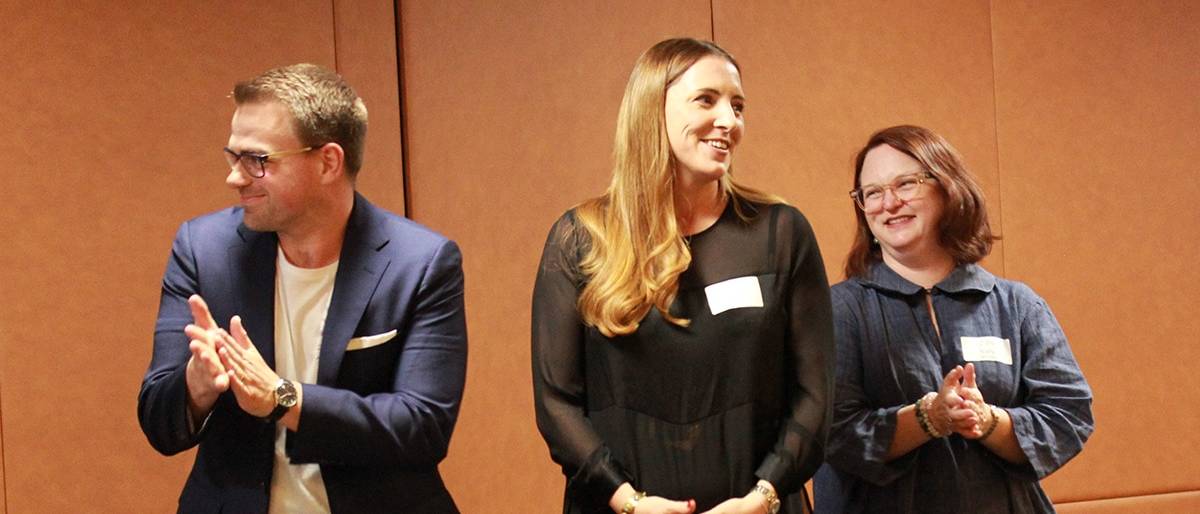
The power of community to bring change
Opinion + AnalysisSociety + Culture
BY The Ethics Centre 19 NOV 2019
On Thursday night, a group of impassioned supporters and philanthropists gathered for a raw look at the work required to get an Ethics Centre program off the ground.
It was our very first Pitch & Pledge event – a unique crowdfunding concept by The Funding Network where charities pitch their funding needs live to a room of curious minds.
The format required three of our program leaders – Alex Hirst, Sally Murphy and Matt Beard – to take to the stage to make a six minute appeal for support for their work. Alex shared why she believes the Festival of Dangerous Ideas is critical to a tolerant society, Sally argued why more people need access to our free counselling helpline, Ethi-call, and Matt canvassed the idea of a budding young philosopher to further our work.
Following their pitches and a barrage of interesting questions from the floor, our leaders were asked to leave the room for a nail-biting window of time while guests pledged their support for their favourite program.
In an electric, emotionally charged and heartwarming hour we raised over $80,000 across the three causes, as well as further pro-bono support. We are incredibly grateful for the generosity of those who attended, and invite you to take a look at the pitches below and consider if there’s one worthy of your backing as well.
1. Support a truly independent Festival of Dangerous Ideas
Alex compelled us to realise that 10 years on from the first Festival of Dangerous Ideas (FODI) in 2010, it’s no longer just a world of dangerous ideas we are considering – it’s the dangerous realities we need to be afraid of. Our modern world of opinion echo chambers and media algorithms that serve to confirm our biases, has lead to an inability across society to have informed and hard conversations about opposing views.
FODI is about challenging our ways of thinking, not confirming them. Sharing personal anecdotes and stories from FODI followers, Alex captured, to a rapt crowd, the sheer necessity of expansive thinking and contested ideas.
“Unchallenged ideas are after all some of the most dangerous, and they are reaching us in more ways than ever before. Reaching right into the heart of the home, and into our everyday lives.”
“If we are unable to have hard conversations, if we are untrained at listening to the ideas that we just don’t want to hear, then our ability as a society to face these dangerous realities together doesn’t exist”.
Ticket sales from the annual festival cover just 50% of festival running costs. Alex, and FODI, need support to bring critical thinking back to challenge dangerous realities in 2020.
Donate here: https://www.thefundingnetwork.com.au/ethics-centre
2. Help Ethi-call guide people through life’s tough decisions
Sally knows challenging situations. As a volunteer Ethi-call counsellor and manager of the service, she’s heard first-hand the difficult and often crippling dilemmas people face, and the impact a call with a trained expert can have.
In a landscape where communities are lacking connection, where neighbours don’t drop in for tea, families don’t spend quality time and friendships take place in text messages, more people feel they don’t have anyone to talk to about the challenging and tricky issues that they are facing.
Ethi-call is a free and independent service. It allows callers to share their troubles, explore their options and think about a path where perhaps there was none before.
Delicately sharing the challenges of two callers to the service, Sally showed the breadth of issues the service can help shine a light on. Whether it’s a young Australian choosing between duty and desire, the very hard choice many of us face around aged care for our ageing parents or a rural farmer forced into making the most heartbreaking choices due to drought, choice is a shared human experience and one that we don’t have to face alone.
Ethi-call only works if people use it. And to use it, they need to know it exists. Sally’s hope was to raise enough funding to let more people in need know that this vital service exists and to upgrade call technology to support additional privacy, a barrier to calling for potential users in the past.
Donate here: https://www.thefundingnetwork.com.au/ethics-centre
3. Plant the seed for a better ideas and fund a Young Philosopher
Dr Matt Beard is a philosopher who knows the value of a curious mind. It’s that itch that makes you wonder why the world is the way it is, that drives you to question what you’ve learnt to find a better way. He’s spent his working life scratching that itch.
Philosophy, Matt believes, is curiosity in motion. The history of philosophy is littered with world-changers. And the history of world-changers is littered with philosophy like Martin Luther King, and the foundations of the Universal Declaration of Human Rights. It’s not just that they changed the world. It’s they were fuelled by the work of philosophy and philosophers.
At The Ethics Centre, we’ve spent thirty years developing new ideas and better worlds. We haven’t always gotten it right, and we’ve never done it alone, but there’s been one constant throughout the process – philosophy. From Primary Ethics in schools teaching children how to think critically, to Short & Curly downloaded over one million times, to Ethical by Design, a research paper that introduces much needed principles for designing ethical technology.
As one of just two philosophers on our staff, Matt says there are less philosophers, and less diversity of ideas than we need to address all the issues rising up out of the cracks in Australia. He says the ideas and possibilities for creating powerful positive change are endless, such as teaching ethics classes prisons, lowering recidivism rates, rethinking media ethics and the limits of free speech or understanding and addressing hate speech and political division in Australia.
But what we don’t have is the capital to support growing our staff. With more funding we can recruit, mentor and house the next generation of budding young philosophers at The Ethics Centre.
Donate here: https://www.thefundingnetwork.com.au/ethics-centre
MOST POPULAR
ArticleBeing Human
Philosophy must (and can) thrive outside universities
ArticleBeing Human
Ozi Batla: Fatherhood is the hardest work I’ve ever done
ArticleHEALTH + WELLBEING
Parent planning – we should be allowed to choose our children’s sex
BY The Ethics Centre
The Ethics Centre is a not-for-profit organisation developing innovative programs, services and experiences, designed to bring ethics to the centre of professional and personal life.
Do we have to choose between being a good parent and good at our job?

Do we have to choose between being a good parent and good at our job?
Opinion + AnalysisRelationships
BY Matthew Beard The Ethics Centre 6 NOV 2019
I’m half writing this, half thinking about whether it is the best use of a few precious, toddler-free moments.
“Framing the issue of work-life balance – as if the two were dramatically opposed – practically ensures work will lose out. Who would ever choose work over life?” writes work-life guru Sheryl Sandberg.
Who indeed?
Well, for one, those who can’t afford to walk away from a job. Unless you’re living very comfortably, you’ll usually be forced to choose work over life. But even setting aside the many people who find themselves in that situation, it’s not clear we live in a world that enables people to choose life over work. Take me, for example.
Today is Friday. It’s the beginning of my three-day weekend. Thanks to flexible working arrangements, Friday is my father-son day. We go to the park, get errands done, pop out to the zoo – it’s brilliant, and I wouldn’t swap it for anything. You’d think I’m the perfect demonstration of Sandberg’s argument, but I’ve got itchy feet. So here I am, writing an op-ed.
Or rather, I’m half writing, half thinking about whether this is the best use of a few precious, toddler-free moments. Would I rather get things done around the house and revel in the simple, domestic bliss of a clean kitchen or a floor free of stickers, marbles and other paraphernalia?
I feel this back-and-forth all the time. It’s a war of identities: the professional version of me is ambitious, busy, focused and demanding; domestic me is patient, spontaneous and calm (for the most part). To be honest, it’s exhausting, and it’s beginning to make me think we haven’t fully figured out what work-life balance really means.
At the moment, we think about work-life balance in terms of the way we allocate our time. A well-balanced life is one in which you can leave work at a reasonable hour, spend enough time on parental or annual leave with loved ones, and where parents can balance care obligations to enable both people to have flourishing lives and careers.
“A well-balanced life is one in which you can leave work at a reasonable hour, spend enough time on parental or annual leave with loved ones, and where parents can balance care obligations to enable both people to have flourishing lives and careers.”
A look at recent proposals in the work-life balance seems to support this: the four-day working week, gender-balanced leave policies, email restrictions and unlimited annual leave all march to the beat of the time-maximisation drum.
This is where I think Sandberg is right – there is something wrong with painting work and life as diametrically opposed, but it’s not what she thinks. It’s because it permits a world in which “work” and “life” are kept totally separate and are permitted to operate according to different norms and values.
My favourite example of this is the unintended viral sensation Robert Kelly, his kids Marion and James and his wife Jung-a Kim, who together conspired to make the best couple of minutes of television in BBC history. After the incident, Kelly copped criticism from some circles for failing to be a good father because he didn’t scoop his daughter up and pop her on his knee during an international broadcast interview. By contrast, the BBC praised Kelly for his professionalism.
Whether Kelly did the right thing or not depends on how you define him in that precise moment. Was he a father or a professor? For Kelly, in the midst of that moment, the dilemma is the same: who should he choose to be, right now?
Unfortunately, based on our current norms around professionalism, he can’t be both at the same time. According to the scripts he seems to have been judged by, Kelly needed to be detached, rational and stoic and simultaneously warm, unconditionally affectionate and responsive. And this is why I think the work-life balance discussion needs to go beyond time and begin to think about identity. We need to permit people to express their domestic identities in the workplace – to redefine what it means to be professional so that it’s not unrecognisable to the people who know us in our personal lives.
These are all good things, but I’m not sure they can do the job on their own. Australian men often don’t take all the parental leave they’re entitled to. There’s little point giving people all this time if those people don’t know what to do with it, or aren’t equipped to use it as they should.
“As we continue to deconstruct unhelpful, gendered divisions of labour that force women to take on domestic and emotional labour and leave men to seek paid employment, there’s a good chance more people are going to start facing these choices – between professional and domestic life.”
“As we continue to deconstruct unhelpful, gendered divisions of labour that force women to take on domestic and emotional labour and leave men to seek paid employment, there’s a good chance more people are going to start facing these choices – between professional and domestic life.”
This isn’t just important for wellbeing. Bringing “domestic virtues” of emotional expressiveness, vulnerability and the like into the workforce helps shape people’s character. Our environments shape who we are. The more we’re encouraged to be competitive, ambitious or whatever else in the workplace, the harder it will be to switch gears and express patience, humility or generosity at home.
The purpose of work-life balance is to help people to flourish, live happy lives outside of work and develop into well-rounded human beings. If we’re going to do that, we need to let people be well-rounded at work too.
This article was written for, and first published by The Guardian. Republished with permission.
Ethics in your inbox.
Get the latest inspiration, intelligence, events & more.
By signing up you agree to our privacy policy
You might be interested in…
Opinion + Analysis
Relationships
What exotic pets teach us about the troubling side of human nature
Opinion + Analysis
Relationships, Society + Culture
The ‘good ones’ aren’t always kind
Explainer
Relationships, Science + Technology
Ethics Explainer: Post-Humanism
Explainer
Health + Wellbeing, Relationships
Ethics Explainer: Values
BY Matthew Beard
Matt is a moral philosopher with a background in applied and military ethics. In 2016, Matt won the Australasian Association of Philosophy prize for media engagement. Formerly a fellow at The Ethics Centre, Matt is currently host on ABC’s Short & Curly podcast and the Vincent Fairfax Fellowship Program Director.
BY The Ethics Centre
The Ethics Centre is a not-for-profit organisation developing innovative programs, services and experiences, designed to bring ethics to the centre of professional and personal life.
We are pitching for your pledge
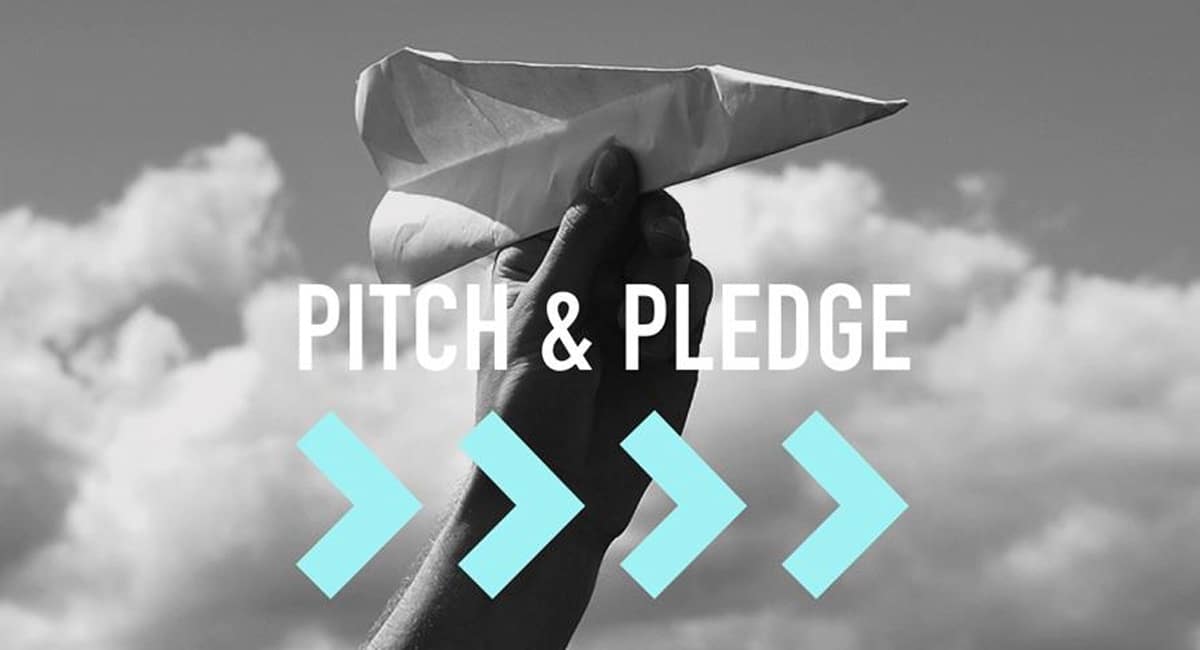
In celebration of our 30th anniversary which kicks off in November this year, we are preparing our very first live-crowdfunding ‘Pitch + Pledge’ night on Thursday 14 November.
Meet and hear directly from leaders of three of our flagship programs: The Festival of Dangerous Ideas, Ethi-call and our Young Philosopher initiative. Each speaker will pitch live on stage for six minutes each, and then answer the audiences questions. What follows is an unforgettable live-pledging experience, based on The Funding Network’s popular format.
1. Support a Truly Independent Festival of Dangerous Ideas
The Festival of Dangerous Ideas is Australia’s original big thinking festival – bringing leading minds from around the world to explore life’s most problematic and divisive issues.
Delivered in partnership with Sydney Opera House for almost a decade, last year marked the start of an exciting new phase for FODI as we branched out on our own. The 2018 festival was a triumphant sell-out, and audiences told us they walked away with a feast of new ideas and perspectives.
While FODI is well-attended and widely loved, it’s also a hugely risky and expensive event to stage. Our insistence on finding the best international storytellers, and keeping ticket prices affordable for broad audiences, pushes us into uncomfortable financial territory.
Your support will help us stage FODI as a break-even event, and allow us to keep doing it, year after year.
2. Help Us Reach More People in Need with Ethi-call
We’re enormously proud of Ethi-call. It’s our free, independent, national helpline available to all. The service provides expert and impartial guidance to help people make their way through life’s toughest challenges, when there’s nowhere else to turn.
Calls can be about almost anything – from professional issues (fraud, corruption, conflicts of interests) through to the deeply personal (birth, death, relationships, families).
There’s no other service like Ethi-call, so we receive calls from all over Australia, and all over the world. Your assistance will allow us to train more counsellors and ensure more people in need know the service exists.
3. Fund a Young Philosopher
Thirty years ago, a young philosopher with a keen interest in ethics and democracy, Dr Simon Longstaff, was appointed as The Ethics Centre’s first employee and Executive Director – a position he continues to hold today.
We’ve engaged a number of budding minds over the years to bring fresh thinking to our work, most recently Dr Matthew Beard, who plays an increasingly vital role in what we do.
We’re seeking funding to secure another bright young philosopher into our team – to apply their learnings to deliver insights and tools to help people build the skills and capacity to live according to their values and principles.
An opportunity to create a ripple effect of change
It will be a highly engaging and memorable evening for everyone involved and is an opportunity for you to get involved in some very exciting, critical projects here at The Ethics Centre.
We are putting our hearts and work on the line for your support. Pitch and Pledge will kick off at 5.30pm Thursday 14 November, at Clayton Utz offices, 1 Bligh St Sydney. Pledging starts from $100.
Please RSVP to rosemary.smithson@ethics.org.au with your details and your guests’ names to book your place to join us.
MOST POPULAR
ArticleBeing Human
Philosophy must (and can) thrive outside universities
ArticleBeing Human
Ozi Batla: Fatherhood is the hardest work I’ve ever done
ArticleHEALTH + WELLBEING
Parent planning – we should be allowed to choose our children’s sex
BY The Ethics Centre
The Ethics Centre is a not-for-profit organisation developing innovative programs, services and experiences, designed to bring ethics to the centre of professional and personal life.
Is masculinity fragile? On the whole, no. But things do change.

Is masculinity fragile? On the whole, no. But things do change.
Opinion + AnalysisRelationships
BY Raewyn Connell The Ethics Centre 15 OCT 2019
If we ask the question, ‘are men fragile?’ my answer would be that quite a number certainly are.
We can see this in the health data. Men, compared with women, have higher levels of some kinds of mental health problem – especially alcoholism and sociopathic disorders. Men, again compared with women, have higher levels of occupational injury and coronary heart disease, higher rates of completed suicide, and – especially young men – much higher rates of injury and death on the road.
These are all long-standing patterns, and society should provide support in the form of men’s health programmes. We should also ask why these patterns exist – given that men’s bodies are not notably weaker than women’s bodies. Which leads us to the question of masculinity.
If we ask the question, ‘is masculinity fragile?’ the answer looks different. Masculinity is a social pattern, and our societies usually define its hegemonic form in terms of power, aggression, wealth and authority. So it’s mainly men who are recruited to run the world.
We may celebrate a first female leader of some country or firm, but the enormous majority of Presidents, Prime Ministers and CEOs are actually blokes in suits. (93.4% of the CEOs of Fortune 500 corporations this year, for instance.) There have not been all that many women Popes, archbishops, chief muftis, abbots, generals, admirals, Treasurers or Directors of the CIA.
There’s a robust social basis for these patterns. Part of it is economic – for the real “gender gap”, look at the superannuation statistics. Part of it is institutional – even in our lovely universities, four-fifths of full professors are blokes, though admittedly some of them don’t wear suits.
Part of it is cultural – turn on the television, and you are likely to see a screen full of extremely fit young men giving a display of professional skill and force. Those who do it best become famous role models and are given a lot of money. Last year Cristiano Ronaldo took home 61 million dollars in salary from Real Madrid, plus 47 million in endorsements. And he was only the second highest paid footballer.
Of course there are other patterns of masculinity – we should really speak of masculinities in the plural. When the media speak of “toxic masculinity” they are pointing to a specific pattern of masculinity that is bidding for the dominant place by putting down alternatives. We have a spectacular example in the career of Mr Trump – it’s hard to miss the element of resentment and revenge in his story.
The patriarchal gender order is not a perfectly-functioning machine. Indeed, since the days of President Eisenhower and Sir Robert Menzies it has seen a deep erosion of legitimacy. What would they have made of the gay marriage survey! Well, we get a glimpse in the current authoritarian backlash around the world. Which goes to show, not that masculinity is fragile, but that gender orders change. They can change for the worse; I live in hope they will change for the better.
Raewyn Connell was one of the speakers at our IQ2 Debate ‘Masculinity – is it really so fragile?’. The debate took place at Sydney Town Hall Wednesday 23 October. She was joined by Catharine Lumby, Zac Seidler and David Leser. Watch the full debate here.
Ethics in your inbox.
Get the latest inspiration, intelligence, events & more.
By signing up you agree to our privacy policy
You might be interested in…
Opinion + Analysis
Health + Wellbeing, Relationships
Banning euthanasia is an attack on human dignity
Opinion + Analysis
Relationships
Five steps to help you through a difficult decision
Big thinker
Relationships, Society + Culture
Big Thinker: Socrates
Opinion + Analysis
Relationships, Society + Culture




